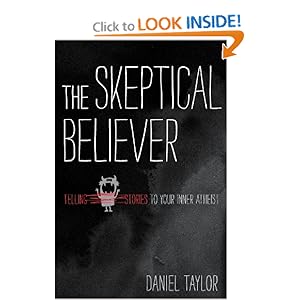Category Archives: Spiritual Life
TRUE PROGRESS

I am scribbling away at a book on The Pilgrim’s Progress. Here is an excerpt:
Bunyan’s understanding of progress is not at all like our modern version. Progress for Bunyan was anchored to ancient traditions which had stood the test of time. Wise people believe these ancient paths are the only ones which offer “rest for the soul.” (Jer. 6:16)[1]
Fools in the modern age blithely discard the old for the new. Of course, the new never stays new so the discarding never stops. It is why people in the modern age not only flit from one fad to another; it is also why we feel the compulsion to keep reinventing ourselves. Even we are getting old (a very bad thing in our culture) and the only way we have for dealing with it is to try some newfangled gimmick which gives the impression that we are not so old after all. It is why cosmetics, plastic surgery, and adultery with more youthful partners are big in America. And it is why suicide, depression, and various addictions also exist.
We modern folk view progress as anything which helps us do a desired task faster and more efficiently. This is the only way “forward.” Bunyan believed the way forward might be slow at times. He also knew it could be fraught with all kinds of challenges which need ample time for preparation. Going too fast may cause one to make serious mistakes. Our fast-paced culture typically finds such methodical preparation a liability.
It matters a lot who is defining progress. Joe Sobran said, “If termites could talk, they would call what they do to a huge house “progress.”[2]
[1]One cultural historian says giving up long-standing categories of right and wrong has led to “inarticulate dread.” See Andrew Delbanco, The Death of Satan: How Americans Have Lost the Sense of Evil (New York, NY: Farrar, Straus and Giroux, 1995), 9.
[2]Accessed on www.dougwils.com, Dec. 8, 2008.
OLD AND WISE
One of my favorite books is The Life of St. Antony by Athanasius. It is not a long read, but chock-full of fascinating stories. It is hard to know whether all the stories are true, but one thing is clear: there is much wisdom in it.
We modern-day Christians tend to think heretics pose the primary danger to a church’s integrity, but St. Antony added another category: schismatics. These are folks who may be orthodox in doctrine, but divisive and so not committed to “preserve the unity of the Spirit in the bond of peace.” (Eph. 4:3)
Here is some of St. Antony’s last counsel to fellow monks. By the way, St. Antony was nearly 105 years old!
“Don’t grow idle in your labors. Live as though dying daily. Stay away from heretics like the Arians and stay away from schismatics.”
(The Life of St. Antony by Athanasius)
WHAT IS YOUR “HAIR SHIRT?”
Thomas More wore a “hair shirt” underneath his fancy garb. The discomfort of the shirt reminded him to not be enamored with all the fancy trappings of man.
Though Christ fully atoned for our sins and we hardly need a “hair shirt,” there are warnings in Scripture to not be enamored with the various ways the world seduces us.
Two passages in this regard which have meant a lot to me over the years are Isa. 2 and Prov. 23:1-3.
You may not have anything approximating a “hair shirt,” but what truths in Scripture help you keep your eyes on Christ and not the enticements of the world?
BORED WITH GOD
Consider someone I will call “Tom.” Tom is a guy I know. He is a nice guy who dutifully has attended church for many years. I’m afraid to report that all Tom’s church attendance still leaves him with a pretty thin understanding of the Christian faith. He is surrounded by opportunities to grow in his understanding of the Christian faith (as are all of us Americans), but they don’t capture his imagination. Tom complains that he is too busy with work plus he says he has adult Attention Deficit Disorder (commonly called ADD).
So what do you think Tom does when the opportunity presents itself to take an intensive course in his field? To take the course he must spend thousands of dollars, live away from home for several weeks, and take several months to digest a thick binder of technical information before he heads off to New York City. He jumps at the chance with gusto and clearly has a focused determination to push himself intellectually. Tom unabashedly tells several of us that the course will give him an edge which will most likely increase his already considerable salary.
We may be tempted to assume our day and age presents a unique challenge to learning because of ever-present media and the pull toward immediate gratification. Consider the words of Puritan pastor, Richard Baxter, to the men in his congregation:
“Were you as but willing to get the knowledge of God and heavenly things as you are to know how to work in your trade, you would have set it to yourself before this day, and you would have spared no cost or pains till you had got it. But you account seven years little enough to learn your trade, and will not bestow one day in seven in diligent learning the matters of your salvation.”[1]
And J.I. Packer notes this was a “working-class congregation.”[2]
Down the ages everyone has always been tempted to wander from God. Some are more honest than others like Augustine who confessed to finding Cicero’s writings more compelling than Scripture.
There is nothing new under the sun. Believing that we have such unusual temptations to keep us from learning is a dodge each one of us must be honest about.
[1]As quoted in J.I. Packer, A Quest for Godliness: The Puritan Vision of the Christian Life (Wheaton, IL: Crossway Books, 1990), 70.
[2] Ibid., 164.
STOP KIDDING YOURSELF!
Don’t kid yourself. There really are two choices in life.
Fearing man or fearing God? (Isaiah)
Going the broad way or the narrow way? (Jesus)
Living for the City of Man or the City of God? (Augustine)
And then this from Boston College professor, Peter Kreeft:
“Since we are east of Eden, our only options are the illusion of a fool’s paradise (modern hedonism and yuppiedom) or the realism of spiritual combat.”
POPULAR OR GOOD BOOKS?
Many popular books offer steps and strategies. I have found most (almost all!) full of problems. How does one go about evaluating their worth? In my book, The Last Men’s Book You’ll Ever Need, I offer six (!) diagnostic questions:
Does the book convey (explicitly or implicitly) that it is the “key” to living the victorious Christian life?
Does the author present more of a formulaic approach to the Christian life rather than the need to grow in the “grace and knowledge of our Lord Jesus Christ?” (II Peter 3:18)
Does the book present a simplistic approach (read “cookie cutter”) to the Christian growth or does it value the wide variety of ways that God sanctifies His people?
Does the author tend to universalize or make normative his own experiences?
Does the author ask the reader to trust his interpretation of his experiences rather than backing those up with the word of God?
Most importantly, does the book focus on the person and work of Christ? In other words, is it a Christ-centered approach to the Christian life or is it a mechanical, moralistic, and behavioral approach?
HOMER SIMPSON’S INNER ATHEIST (PART 2)

http://www.amazon.com/The-Skeptical-Believer-Telling-Stories/dp/0970651155/ref=tmm_pap_title_0
Again, Dan has some well-chosen quotes to lead off each chapter. Here is one by Samuel Johnson: “The existence of twilight is not an argument against the distinction between night and day.”
Here are a few other things I appreciate from further reading in The Skeptical Believer:
Christianity invites us to a entirely different type of life. Dan does a great job of underscoring the ethical implications of Christianity and how our doubt may involve a whole lot more than just intellectual difficulties.
People who blurb books often say “Chapter 3 is worth the price of the book.” They are obviously wanting to underscore how invaluable that particular section was to them. Well, one of Dan’s chapter titles may be worth the price of the book: “Wanting What You Cannot Have: Certainty as Metaphysical Gluttony.” Noodle on that for a few minutes!
There are some wise reflections on the importance of both story and propositions.
Dan has a wonderful way of taking popular views and turning them on their proverbial head. For example, he argues that it is actually easier to believe when one lives in a skeptical age.
And learn why Satan is our first literary critic!
MISSIONAL CAN REPLACE GOD
A.W. Tozer famously said, “So many are caught up in the work of the Lord that they have forgotten the Lord of the work.” The disciples of Jesus were amazed at the power God was giving them for ministry, but our Lord reminded them where their true joy should reside: having their “names recorded in heaven.”
Anthony Bradley has offered an important critique of a new type of zeal, especially among younger evangelicals, which at times can be misplaced.
http://www.worldmag.com/2013/05/the_new_legalism
It is unwise to assume any of us have the proper balance on this issue, but I do think Bradley makes some critical points…points that this middle-aged evangelical, who has done street preaching in places like Berkeley and Boulder, yet now lives in the suburbs trying to make sense of the Christian life appreciates.
I have lived both errors: “zeal with not enough knowledge” and “plenty of knowledge with flickering amounts of zeal.” I don’t have it figured out, but I do appreciate those who offer an alternative perspective to new trends within evangelicalism. And we evangelicals are prone to trends. This is not all bad as we want to be always open to “reforming the church” when those reforms are truly called for. The danger is to get enticed in a direction simply because it is novel and then becomes popular.
I am glad for the zeal and intensity of purpose among many younger evangelicals. But since every strength can also be a great liability, I do think Bradley’s words ought to be carefully considered. Much more needs to be said, but the conversation needs to take place.
So read Bradley and consider whether his push back on a new sort of “legalism” has any merit.
I would love to hear what you think!
WHO DEFINES REALITY?
We need to be discerning who we listen to and why. Too many assume that the one with the microphone is the expert. Americans have had a love affair with celebrity that goes back at least to the Jacksonian period. Alexis de Tocqueville wrote about it in the 1830s.
Perhaps there are quieter voices who don’t have a microphone, but have loads of wisdom to impart…if we will just be less enamored with the dreadful din of celebrity.




